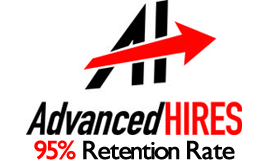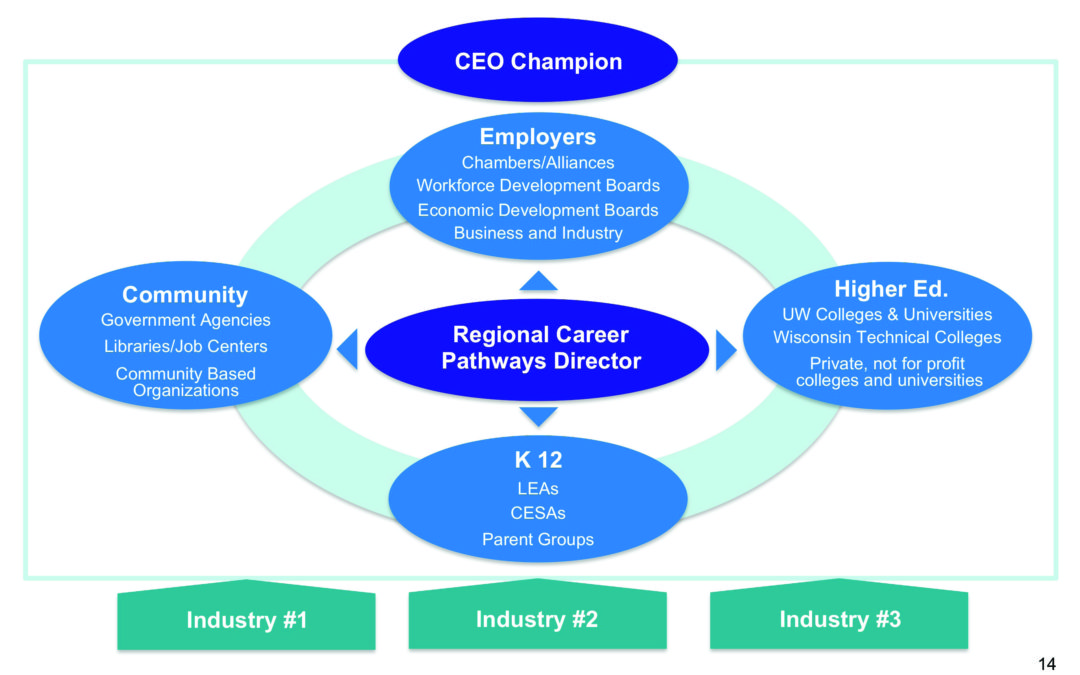It was an honor to be asked to attend the CEO meeting on a new College and Career readiness and talent development initiative, which is called the Wisconsin Regional Career Pathways Project. As part of Advanced Hires’ continued commitment to provide guidance within the IT community in addition to NCWIT, IT United, Employ Milwaukee, and many other boards, committees, and round-table discussions throughout the professional and education community, it was an honor to be asked to collaborate at a round-table this morning at Briggs & Stratton with several CEO’s, including Briggs & Stratton CEO Todd Teske.
After attending the round-table discussion and after further reflection, we believe the challenge the high school educational system is having in terms of readiness, in our opinion, is a shortage of available high school IT programs that are designed to prepare students for college in a way that meets the IT workforce demand. This shortage is due to:
- Overall lack of funding.
- The lack of high school IT programs remaining current in a way that matches the “real world”.
- Lack of available IT professionals willing to teach high school at an educator’s pay. Many IT professionals are earning over $120,000 and sometimes as high as $300,000 per year and not willing to teach at an educator’s salary. God Bless those passionate and committed educators who have answered their calling to teach high school at a salary much lower than the professional equivalency.
- The inability to employ highly qualified part-time high school educators who work in the field due to regulatory and licensing requirements.
Solving the third and fourth challenge will likely solve the first two.
Therefore, we propose the following four step process that could resolve these challenges and result in more IT courses in high school:
- Work toward the “Adjunct Professor” model for high schools. This will require having the existing restrictions lifted to teach part-time in high schools in the very specialized IT field. This will require advocacy among employers to lobby towards removing such restrictions and licensing requirements. The IT industry needs to be recognized as an ever-changing industry that enables industry experts to apply their passion for educating beyond just the college level and that enables and encourages such experts to teach as Adjunct teachers in high school.
- Develop a formal platform (website and mobile app) that will enable IT experts to register their area of expertise and willingness to teach as an Adjunct in high school. This platform could also serve as a means to satisfy certain limited licensing requirements while also lifting some of the liability placed on individual high schools. This platform would target IT professionals who work in the industry and are looking to give back to high schools. This platform could be considered a “match-making” platform between willing part-time IT educators and high schools looking for an IT Adjunct educator. The demand on both the high school end and IT educators end will be significant after the regulatory and licensing challenge is addressed.
- Address the limited high school teachers pay issue for these would-be high school Adjunct Professors by proactively reaching out to and encouraging high school administrators to target their own IT alum.
- By addressing the above three, employers will become a lot more likely to fund high school IT programs because a realistic platform would be in place—one that addresses the shortage of IT educators and the ability to match-make them with high schools.
Another separate challenge independent of everything written above involves the lack of employers willing to offer internships to college students. Currently, employers offer internship opportunities and make such opportunities available to students. We propose a reverse system. That involves developing a platform that enables students to register as a “would-be” internship. Then, work with recruiting companies and other outlets that involves creating internship opportunities for passively looking employers. For example, Advanced Hires has many clients who are willing to hire an intern; however, most of these employers do not have a formal internship process in place. Having an internship employee – employer match-making platform will enable those employers who are open to bringing on interns (but not actively seeking to do so) to create intern opportunities based on a student-employer match. The challenge is a shortage of talent. This can be addressed by reversing the current internship process from “employer need first and interns apply” to “talented interns available and employers applying for them.”
We are happy to discuss in far more detail more specifics to what we have identified and what solutions we feel may help.





